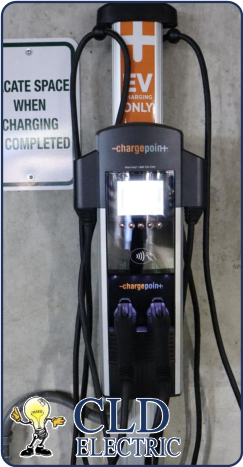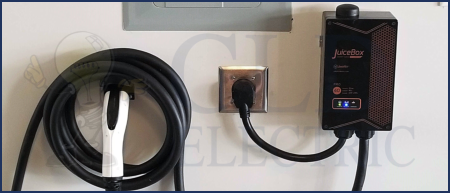
Using electricity to fuel a vehicle often gives more advantages that are not found in conventional vehicles. The motors of electric vehicles, react quickly making them responsive and giving the vehicles good torque. EVs are generally more connected digitally which is a positive when it comes to today’s technologically advanced world. You can even control some EV charging stations with your smartphone!
Speaking of smartphones, electric vehicles are charged pretty much the same way. When you get home, just plug your car into your charging station and it will be charged up and ready to run in the morning. You can even get a charge on the road. Wherever there is a charging station, you can get a charge up. With the popularity of electric vehicles, charging stations are popping up everywhere. You may never need to visit a gas station again.
Electric Vehicles and the Environment
Electric cars have can bring individuals a lot of benefits but can also greatly help the environment and the country. With EVs becoming more popular, there are more options to choose for fuel for transportation. According to the US Energy Information Administration, the US consumed roughly 7.21 billion barrels of petroleum products. That equals about 19.69 million barrels a day. With the US relying so much on petroleum, it leaves us vulnerable to not only price spikes but also supply disruptions. Electric cars can help reduce this reliance as almost all the electricity in the US is produced from sources found domestically such as coal, natural gas, and renewable sources.
The emissions found destroying the climate and producing smog can also be reduced by EVs. This will help improve the health of the public and reduce damage to the eco-system. If you charge your car via renewable sources, such as solar or wind, can help reduce these emissions even more.
The US Department of Energy has provided a calculator to help compare the cost of fuel between conventional vehicles and EVs.
Types of Electric Vehicles
There are two types of electric vehicles – all-electric vehicles and plug-in hybrid electric vehicles.
All-Electric Vehicles (AEVs)
All-electric vehicles run solely on electricity. The motors found in these vehicles are powered only by a rechargable battery. These vehicles take longer to charge than their plug-in counter part as the batteries are larger but the number of miles it can drive, or it’s range, is greater.
As with many vehicles that have a battery pack, all-electric vehicles are able to recharge the battery when braking is applied. This is known as regenerative braking. It can help the charge last longer, extending the range. This is especially good when a driver is braking a lot such as in city driving.
Typical all-electric vehicles can travel for 60 to 120 miles with a single charge. Some higher-end models can even reach up to 300 miles. The US Department of Transportation has said that a range of 80 miles per charge has been found sufficient for about 90% of US households.
Plug-In Hybrid Vehicles (PHEVs)
Plug-in hybrid vehicles have both an internal combustion engine as well as a battery. This helps these vehicles run longer than all-electric vehicles. Plug-in hybrids use electricity for a shorter range than all-electric vehicles and then switch to gas. At this point these vehicles act more like a plain hybrid vehicle where it consumes less fuel and produce fewer emissions than convential vehicles. Plug-in hybrid vehicles also use regenerative braking to recharge the batteries.
PHEVs make great long distance cars. Where you may have to worry about finding an EV charger with an all-electric vehicle, plug-ins give you an extra layer of security by jumping back to the gas engine when the charge runs out.
Plug-in vehicles ranges vary based on the make and model of the car. Ranges can vary from 97 to 133 and miles per gallon can vary from 40 to 54.
How to Choose the Right Electric Vehicle?
When you start looking for a new electric vehicle you should take a few things into consideration. Evaluate your needs, how far you drive, how often you drive, and think of what will best fit your needs. These cars are great investments that will help reduce your fuel costs and create a better world for the future. If you need additional assistance deciding which car you should buy, give CLD Electric a call today!

Best EV Make / Model
We searched the internet for the best electric cars you can purchase today. DigitalTrends has compiled a great list of the most promising cars on the marketing today.
Tesla Model 3
This EV was listed as “the best electric vehicle on sale”. With a price tag of $35,000 this vehicle has a long range battery than can get about 310 miles. Sylish looking on the outside, with luxury on the inside, it’s said to be fun to drive and packed with safety features.
The Tesla Model 3 receives over-the-air updates which means that even after you buy your car, you can get all the important updates without visiting the dealership.
Learn more about getting your Tesla Wall Connector or preferred charging method installed by us today!
Chevrolet Bolt EV
At $37,495, the Chevy Bolt EV is a good long range alternative to the Tesla Model 3. This vehicle also drivers to give up the gas without sacrificing the range. This car boasts a range of 238 miles.
The cabin is quite comfortable and roomy with a 10.2 inch touchscreen and quick charging options.
2018 Nissan Leaf
The Nissan Leaf is probably one of the most well-rounded vehicles on the market today. Priced around $29,990, this vehicle first appeared on the market in 2010. Though the design has changed, the Leaf has aged well. The 2018 model offers a range of 150 miles and though it’s not a long range vehicle, it is perfect for those who have a smaller commute and want to save on fuel and emissions.
Let us help get a charger installed for your Nissan Leaf!
BMW i3
The BMW i3 offers drivers a way to stand out, a comfortable ride, and an easy park. This car costs about $44,450 and definitely makes a statment.
The drive of the BMW i3 is smooth and quiet and feels like a luxurious car. It has a range of 180 miles.
Kia Soul EV
This car is roomy and packed with features. At $32,250, the Kia Soul EV is an eye-catching vehicle that is usable, comfortable, and spacious. It has a 93 mile range that can recharge to about 80% in less that 35 minutes.

Best Electric Vehicle Charger Installers in San Diego
Why Should You Choose CLD Electric To Install Your Electric Vehicle Charger?
CLD Electric is locally owned and operated. We have over 20 years of experience in the electrical industry and strive to provide you with the most timely and cost effective service around. Our electricians respect your time, home, and mostly importantly – you. We like to pride ourselves on bringing San Diego residents and business owners with honestly and reliable electrical solutions to keep you happy and safe. Our customers are always kept in the loop during their electrical projects so there will be no surprises at the end of a job. We are licensed, bonded, and insured and offer estimates and discounts to senior citizens and military members.
What rebates are available for electric vehicle owners in Southern California?
To view rebates available to residents of Southern California, please reach out to your utility provider such as Southern California Edison.
Recent Blog Posts
- Where Can I Charge My Electric Vehicle in San Diego?
- How Much Does It Cost To Charge An Electric Vehicle in San Diego?
- Saving Money on Electricity with an Electric Vehicle
- What Happens If A Tesla Runs Out Of Charge?
- How Long Does A Nissan Leaf Last?
- Electric Vehicle Charger Installation Near Temecula
- Installing an EV Charger in your Murrieta Home
- Looking for an EV Charging Station Near San Diego? Install One At Home!
- New Service: Electric Vehicle Charger Installation
